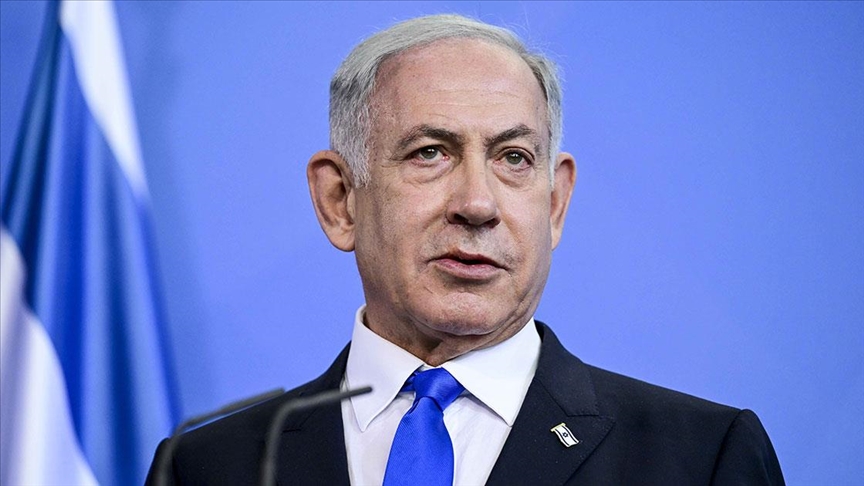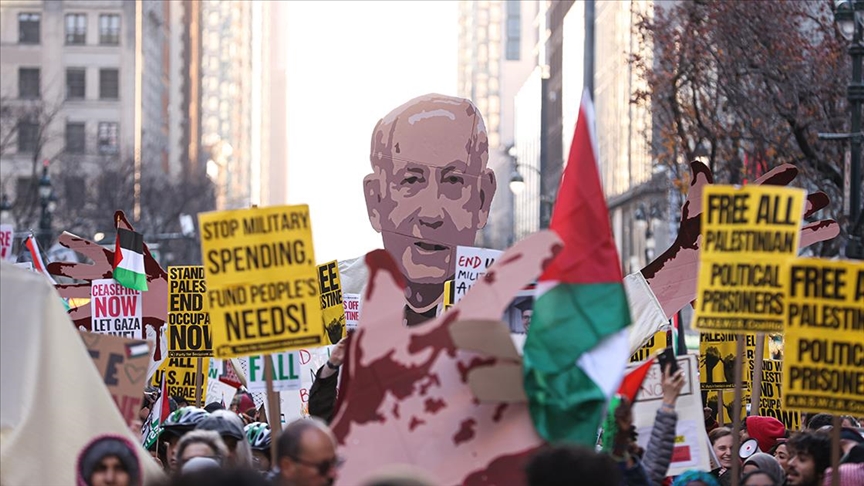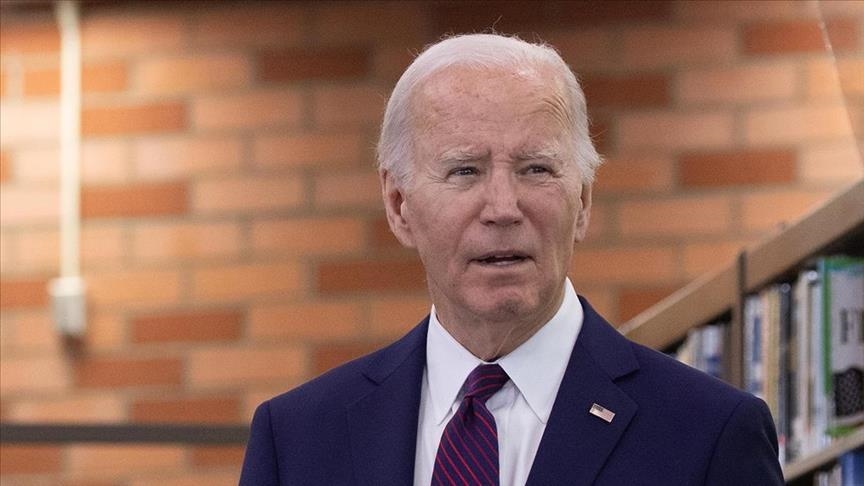Genocide

The ‘tragedy’ of US policy vis-a-vis Israel
| OpinionThe Biden administration seems to have at least temporarily succeeded in preventing Iran’s direct attack …
-
Opinion
The ‘tragedy’ of US policy vis-a-vis Israel
By Kadir ÜstünThe Biden administration seems to have at least temporarily succeeded in preventing Iran's direct attack on Israel from escalating into an uncontrolled war. The White House conveyed the message to Israel through various channels that any attack on Iran should be 'proportional,' also signaling to the Netanyahu government that US support for Israel would be limited to defense. With the assistance of the United States, the United Kingdom, and Jordan, Iran's UAVs and missiles were intercepted before reaching Israeli airspace, making the job of the Iron Dome relatively easier. However, Iran's low-intensity and controlled attack with low-cost weapons demonstrated that in a more 'real' war, Israel's task would be far from easy. The attack, which brought the urgency of Israel's defense to the forefront, seems to pave the way for a vote on a long-delayed aid package for Israel, Ukraine, and Taiwan in the House of Representatives. The fact that American foreign aid could reach the approval stage thanks to the attack on Israel indicates how much the issues that bring Republicans and Democrats together have decreased.
-
Opinion
Israel’s 2 grave mistakes that put its Western allies in hot water
By Muhittin AtamanThe latest developments in Gaza have forced many states to reconsider their policies toward Israel’s genocidal attacks, the suffering of the people of Gaza and the resistance of the Gazan people, which will continue to shape not only regional but also global politics.
-
Opinion
Did Biden abandon Israel at the UN General Assembly?
By Kadir ÜstünThe 'immediate ceasefire resolution' issued by the United Nations General Assembly (UNGA) due to the United States' abstention indicates that the Biden administration's political pressure on Israeli Prime Minister Netanyahu persists. Despite the White House emphasizing that the decision is not binding and that there are no changes in policy, Netanyahu canceled the visit of the delegation he planned to send to Washington immediately after the UNGA decision. The fact that the Biden administration, which has been diplomatically protecting Israel with its veto power since October 7th, chose to abstain this time suggests that the crisis in bilateral relations has reached its peak. While Netanyahu may lean towards Trump, who has advocated for ending the conflict, Trump's remarks have increased American pressure.
Bu Konuda Daha Fazla
-
The Netanyahu predicament among Israel’s allies in Washington
By Kadir ÜstünIn 2015, Netanyahu came to Washington to dynamite Obama's deal with Iran and made a speech in Congress. Obama was trying to delay Congress's new sanctions to make a nuclear deal with Iran. Netanyahu accepted the invitation of Republicans in the House of Representatives and did not coordinate his visit with Obama's White House. Netanyahu's speech at the session, attended by both wings of Congress, was repeatedly applauded. Netanyahu, who tried to end Obama's nuclear talks with Iran by imposing sanctions on Iran by Republicans and some Democrats in Congress, failed. Vice President Biden, who sat behind Netanyahu during his speech to Congress, seems to be facing a similar Netanyahu problem these days.
-
Ramadan, Gaza and anti-Islam sentiment
By Burhanettin DuranFriday marked the fifth day of Ramadan. Unfortunately, there is still no cease-fire in Gaza, and Israel continues to kill Palestinians waiting for food supplies. Earlier this week, Israeli troops killed six Palestinians and injured 83 others as they waited in line to receive a bag of flour. That was not the first time, and it won’t be the last.
-
What does the Biden-Netanyahu spat signify?
By Burhanettin DuranU.S. President Joe Biden recently said that they are working on a six-week emergency cease-fire, describing Rafah as a red line. Yet Israeli Prime Minister Benjamin Netanyahu reiterated his commitment to conduct military operations in that area. The Israeli army perpetrating atrocities in Rafah, where 1.4 million Palestinians have been starving during Ramadan, would be a new source of shame for the world and the Muslim community. Since the U.S. exerts greater influence over Israel than any other nation, one cannot help but keep an eye on the Biden administration's (in)action.
-
Biden’s red line…
By Kadir ÜstünPresident Biden publicly revealed his disagreement with Netanyahu over the Gaza issue in his 'red line' statement over the weekend. Biden stated that a military operation into Gaza was a red line for the Rafah that Netanyahu had planned. Facing heavy criticism from his own base for not calling for a ceasefire for a long time, Biden finally started to mention a ceasefire. On the other hand, by stating that he would never abandon Israel, Biden showed that his red line was not that strict. He also said that Netanyahu's policies were harming Israel. While expressing his intention to continue financing defense systems like Iron Dome, which protect Israel, Biden also mentioned that they could not tolerate the deaths of another 30,000 Palestinians and urged Netanyahu to be careful about the deaths of innocent civilians. It is no coincidence that Biden is making such statements at this stage of his presidential campaign, as the message of the Democratic electorate in Palestine was clear after the primary results.
-
Will there be cease-fire in Gaza during Ramadan?
By Muhittin AtamanFor the past five months, Israel has been targeting the innocent people of Gaza, with the United States and most Western governments continuing to mobilize their resources to support Israel’s brutal attacks against Gaza. By now, the attacks have become Israel’s longest intensive military operation against the Palestinians. On the one hand, while the Palestinian people are at their most vulnerable position and facing genocide, hundreds of millions of people around the world are chanting their just cause. On the other hand, as Israel continues its longest and most brutal attacks against the Palestinians, it has lost legitimacy not only in the eyes of the international community but also in the eyes of most of its supporters. It seems that this is the main paradox of post-Oct. 7.

















